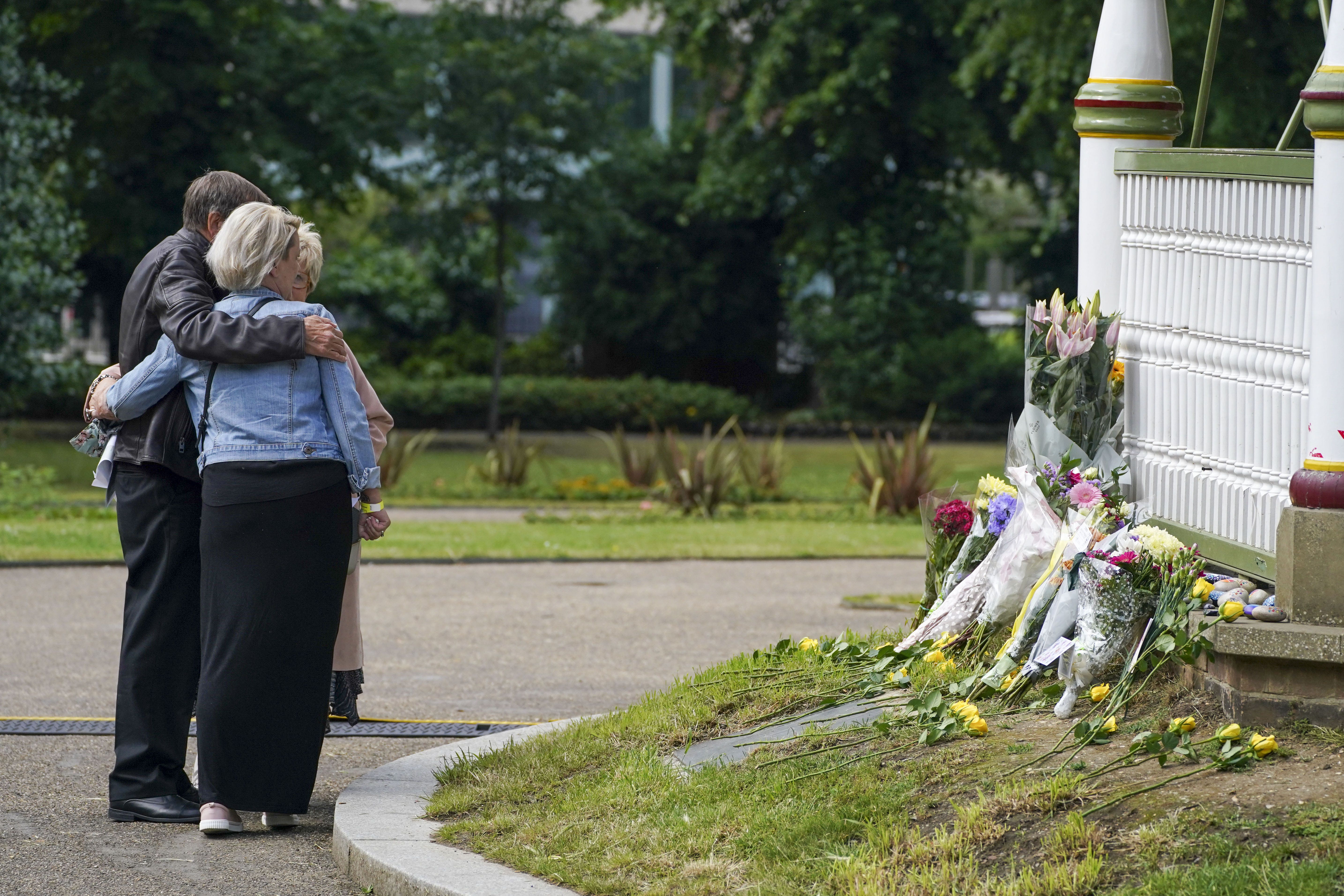‘Delay in ambulances being told Reading killings was marauding terrorist attack’
Khairi Saadallah fatally stabbed friends James Furlong, Dr David Wails, and Joseph Ritchie-Bennet on June 20 2020.

Your support helps us to tell the story
From reproductive rights to climate change to Big Tech, The Independent is on the ground when the story is developing. Whether it's investigating the financials of Elon Musk's pro-Trump PAC or producing our latest documentary, 'The A Word', which shines a light on the American women fighting for reproductive rights, we know how important it is to parse out the facts from the messaging.
At such a critical moment in US history, we need reporters on the ground. Your donation allows us to keep sending journalists to speak to both sides of the story.
The Independent is trusted by Americans across the entire political spectrum. And unlike many other quality news outlets, we choose not to lock Americans out of our reporting and analysis with paywalls. We believe quality journalism should be available to everyone, paid for by those who can afford it.
Your support makes all the difference.The ambulance service responding to the Reading killings was only notified that it was a “marauding terrorist attack” (MTA) almost an hour and a half after police declared it, an inquest has heard.
Libyan refugee Khairi Saadallah shouted “Allah Akbar” as he fatally stabbed friends James Furlong, 36, Dr David Wails, 49, and Joseph Ritchie-Bennett, 39, on June 20 2020 in the town’s Forbury Gardens.
Three other people – Stephen Young, Patrick Edwards and Nishit Nisudan – were also injured before Saadallah threw away the 8in (20cm) knife and ran off, pursued by an off-duty police officer.
The head of resilience and specialist operations for the South Central Ambulance Service (SCAS), James Amos, said there was a delay in the declaration of Operation Plato – a national identifier for the response to an MTA – being communicated to SCAS control rooms.
The inquest heard this was not found to have “any causative impact” on what happened during the attacks.
But Mr Amos conceded that the delay was “worrying” after he was asked to provide an “unflinching and candid view” of what was “less than optimal” in the response to the incident, during his prevention of future deaths evidence at the Old Bailey on Tuesday.
Mr Amos said: “On the night, Operation Plato was declared from an inspector on the scene at 19.48 but the communication of that declaration between there and our control room did not happen until much later.”
The court heard the ambulance service received notification at 21.13.
Counsel to the inquest, Nicholas Moss KC, said SCAS crews were on the scene in any case following calls from police and members of the public.
Mr Amos told of how the delay has prompted changes in the service.
The type of incident will now be communicated by police to the ambulance service via a channel that connects the services’ control rooms, which are monitored 24/7, before the same information is shared via an inter-operability channel, which is monitored by commanders who are being dispatched or are en route to the scene before it is then passed through an “open mutual aid” channel available to all responding resources.
Operation Plato can only be declared by police, the inquest heard.
Other changes were aired in court, including updates to training that emphasise the importance of conveying information according to the M/ethane model – a reporting framework which provides a common structure for responders and their control rooms to share incident information.
The inquest heard how a “highly experienced team leader” who was at the scene did not convey information according to that recognised model because of the “stress and pressure” of the “once-in-a-career” type event.
Mr Amos said commanders now go through annual update training, control room operators are trained to ask crews specifically for a M/ethane report and reminders of the reporting model are on vehicle dashboards.
A post-incident review commissioned by Mr Amos identified several lessons from the Reading attacks, including that responses need to be “proactive as well as reactive” and that the nature of calls need to be logged correctly.
He said the control shift officer that evening had “queried in her mind” that the incident was a potential Operation Plato.
Explaining why the lesson to be proactive was identified, he said: “It was actually about voicing that to the higher command structure more quickly, escalate that more quickly, so that we could put some other proactive elements in place.”
In relation to the nature of calls needing to be selected correctly, the inquest heard how one call, which provided the address of the incident and contained information that four people had been stabbed, was logged at a lower tier than it should have been.
Mr Amos said it would have been “extremely concerning” that the nature of the call was logged incorrectly if that had been the only call that came through.
Mr Amos was not directly involved in the events on June 20 2020.
In January 2021, Saadallah was handed a whole-life sentence at the Old Bailey after pleading guilty to three murders and three attempted murders.
The inquest was tasked with looking at the management of Saadallah while in prison and on probation, as well as his mental health, and the assessment and response to his risk of terrorism before the attacks.
The inquest continues.